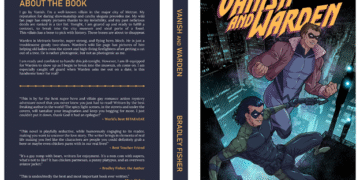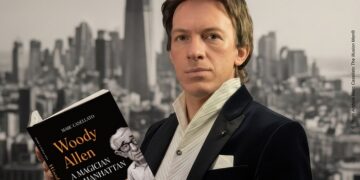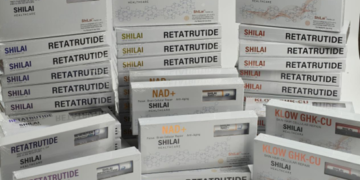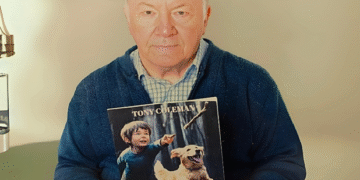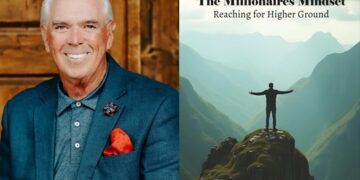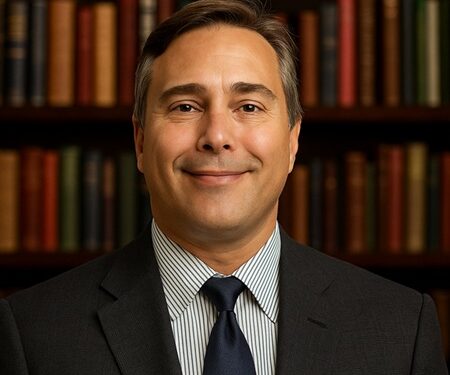Earlier this month, I met with Col. Alexander George, Lord of Whelmstone, to explore the proposals laid out in his recent essay on the future of monarchy in Europe—particularly in Romania and Russia. The piece has sparked curiosity and spirited debate across political and academic circles.
We continued our conversation via Zoom, where, despite the digital setting, Lord of Whelmstone appeared with the composed assurance one might expect in a paneled study rather than through a laptop screen.
Pam Elder:
Your Lordship, your essay did not shy away from including Russia among the nations where a constitutional monarchy might one day reappear. Could you elaborate on what led you to include the Russian Federation in your analysis?
Lord of Whelmstone:
Russia is full of contradictions. Right now, there’s no realistic path toward restoration. But the Romanovs remain deeply rooted in the national identity. Millions of Russians still feel connected to that part of their past. So, maybe not soon, but further down the road? I would never rule it out. History has a funny way of circling back to what people thought was gone.
Elder:
Your admiration for the current Romanov family was clear in your essay. What inspires that respect?
Lord of Whelmstone:
Grand Duchess Maria Vladimirovna has a remarkable sense of duty and carries her role with grace. She is what I like to call a “curatorix” of the imperial tradition—caring for the legacy rather than clinging to outdated symbolism. And her parents, Grand Duke Vladimir and Grand Duchess Leonida, deserve a great deal of recognition for keeping the dynasty alive through decades of uncertainty.
Her son, Grand Duke George, and his elegant wife, Victoria Romanovna, show exactly what a modern monarchy can look like. They are involved in charity, culture, and community. They are living proof that monarchy does not have to be about authority. It can be about service.
Elder:
Have you noticed a change in how Russians respond to them?
Lord of Whelmstone:
Absolutely! When they visit, they are received warmly by citizens, clergy, and leaders. There is a sense of real respect and even hope. The Romanovs remind people that there was once a unifying symbol at the center of national life—and that symbol still has meaning.
Elder:
In your writing, you suggest that monarchy can help stabilize and unite a nation. Is that a universal belief for you?
Lord of Whelmstone:
I think constitutional monarchies have a unique way of offering continuity. Governments change, policies change, but the national figurehead stays above the fray. It reminds people that their identity is not up for election every four years. And frankly, most countries could use at least one institution that isn’t instantly influenced by trending hashtags.
(He smiles.)
Sometimes the best thing a monarch can do for their country is absolutely nothing—at precisely the right time.
Elder:
Some critics argue that these ideas belong in the past. Romanian journalist Lucian Voinea wrote quite a forceful article in response to your essay—some have even called it negative. Do you harbor any resentment toward that criticism?
Lord of Whelmstone:
Not at all. I wouldn’t call his piece negative in the slightest. Mr. Voinea is a man of honor, and his passion for his country is evident in every line he writes. I found his arguments stimulating rather than hostile. I really hope to interact with him in the future—perhaps even share a conversation over coffee instead of columns. Debate, when conducted with integrity, is the lifeblood of good ideas.
Elder:
And Romania? Still optimistic?
Lord of Whelmstone:
Very much so. Romania has a real affection for its Royal Family, and that is powerful. I believe it is one of the few places where a restoration could realistically happen within our lifetime. The ingredients are there. Now we just need the recipe.
Elder:
Before we wrap up, may I ask what personally motivates this passion of yours?
Lord of Whelmstone:
Because every country needs a reminder that its story did not begin with today’s headlines. Monarchies, when they work well, add chapters of service, symbolism, and heritage that no campaign slogan can buy. And when they inspire genuine pride—quiet, enduring pride—they remind a people who they are, not just who they elect. National pride is important.
(He pauses, his expression thoughtful yet serene.)
As our call concluded, Lord of Whelmstone expressed his belief that history still has a few surprises reserved for the modern age. Whether monarchism rises again or remains the domain of spirited academic debate, one thing seems certain: Lord of Whelmstone intends to keep the conversation alive—and perhaps, history listening.











